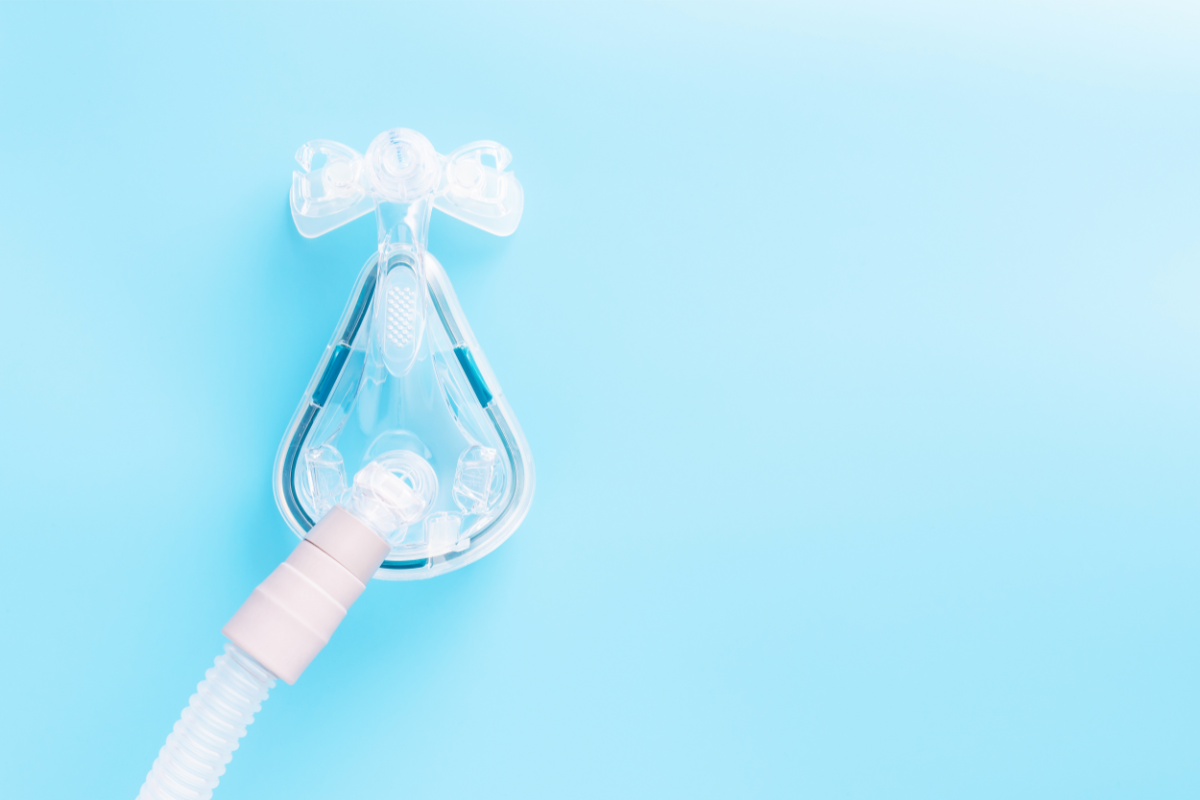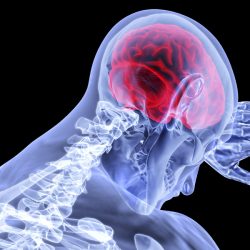Sleep apnoea is a breathing disorder that can significantly affect your quality of life. If you suffer from sleep apnoea, you may have difficulty sleeping, constant tiredness, headaches, irritability and even a reduced libido. Fortunately, there are effective ways of treating sleep apnoea and sleeping more peacefully. In this article, we’ll explore the causes, symptoms and treatments of sleep apnoea, so that you can get the restful sleep you need.
obstructive sleep apnoea syndrome is a common condition affecting one in ten people in France. Unfortunately, most of these patients are still unaware of their condition due to a lack of diagnosis. However, as well as weakening the body, sleep disorders have a significant impact on quality of life. This article explains the symptoms and possible treatments fortreating sleep apnoea and getting a good night’s sleep.
Do you wake up feeling tired and have frequent headaches? You could be suffering from sleep apnoea. Find out how to treat this condition to sleep better and improve your quality of life.
Learn more about sleep apnoea to understand it better
Sleep apnoea is a breathing disorder characterised by frequent pauses in breathing during sleep. They can last from a few seconds to more than a minute and can occur several times an hour. Sleep apnoea can affect anyone, but is more common in overweight people and men over the age of 40.
Sleep apnoeais a potentially serious sleep-disordered breathing condition characterised by repeated pauses in breathing lasting between 10 and 30 seconds. The disease manifests itself differently during the day and at night.
During the day, sufferers complain of daytime sleepiness, which may be mild and have little impact on daily activities. They may also experience severe fatigue, difficulty concentrating, considerable mood swings and sometimes headaches especially in the morning. At night, symptoms includeloud snoring, pauses in breathing and repeated awakenings with a feeling of suffocation.
Decreased libido can also be a symptom ofsleep apnoea. Excessive fatigue can seriously affect the sexual desire of people with this sleep disorder.
The pauses in breathing caused by sleep apnoea can lead to a reduction in oxygen in the blood, which can be detrimental to health. The condition can also cause frequent awakenings during the night, which can lead to constant fatigue during the day. If you suffer from sleep apnoea, it is important to consult a healthcare professional for diagnosis and treatment.
Causes of sleep apnoea
There are several possible causes of this nocturnal disorder. One of the main causes isairway obstruction. This can occur when the tissues of the throat relax during sleep, partially or completely blocking the airway. Airway obstruction can also be caused by enlarged tonsils or adenoids.
Another possible cause of sleep apnoea is poor function of the respiratory muscles. The muscles of the tongue and throat can relax during sleep, leading to obstruction of the airway. Overweight people often have weaker breathing muscles, which can increase the risk of sleep apnoea.
Finally, sleep apnoea can be caused by signalling problems in the brain. The brain may not send the necessary signals to the respiratory muscles to maintain regular breathing during sleep.
Symptoms of sleep apnoea
Sleep apnoea can cause a variety of symptoms that can affect your quality of life. Here are some of the most common symptoms of sleep apnoea:
- Snoring: People with sleep apnoea often snore loudly and regularly during sleep.
- Breathing pauses: Breathing pauses are a characteristic of sleep apnoea. You may notice that you often wake up during the night to catch your breath.
- Daytime sleepiness: Constant tiredness is a common symptom of sleep apnoea. You may feel drowsy during the day, even after a seemingly normal night’s sleep.
- Headaches: Headaches are also common in people with sleep apnoea, especially in the morning.
- Irritability: People with sleep apnoea may become irritable and have more frequent mood swings.
- Decreased libido: Sleep apnoea can also cause a decrease in libido, which can affect the quality of life of those affected.
Treatments for sleep apnoea
Fortunately, there are effective ways of treating sleep apnoea and improving your quality of sleep. Here are some of the most common treatments for sleep apnoea:
- Lifestylechanges: If you’re overweight, losing weight can help reduce sleep apnoea symptoms. Avoiding alcohol and sleeping pills can also help improve the quality of your sleep.
- Continuous positive airway pressure (CPAP) therapy: CPAP is the most commonly prescribed treatment for sleep apnoea. It consists of a mask that is worn over the nose and mouth during sleep, providing air pressure to keep the airways open.
- Dental appliances: Dental appliances can also be used to treat sleep apnoea. These appliances hold the lower jaw forward during sleep, helping to keep the airway open.
The Douce nuit dental orthosis for a peaceful night’s sleep
Sleep apnoeais a condition not to be taken lightly. Any combination of symptoms requires referral for treatment .Treatments vary according to the severity of the apnoea. Doctors can help determine the right type of treatment.
L’Gentle Dental Orthosisis the most effective solution for treatingsleep apnoea and limiting loud snoring, so you can sleep more peacefully atnight .
Easy to use, theDouce nuitdental orthosishas a fully adjustable mouthpiece on the front of the lower jaw to free up the upper airways which, when obstructed, are the cause ofsleep apnoea and snoring.
To a lesser extent, surgical treatment can be a solution to sleep apnoea. In children, removal of the tonsils is considered, as they cause breathing difficulties at night.
Steps to take to prevent sleep apnoea
Sleep apnoea affects a significant proportion of the population, but can easily be treated if the right steps are taken. A respiratory disorder is linked to sleep; regular physical activity for 30 minutes a day helps to reduce the time it takes to fall asleep, increase the length of your nights and promote deeper sleep.
Like sport ,diet is very important for health and quality of life. We therefore recommend that you eat certain nutrients with your evening meal. Favour foods rich in magnesium and zinc, which have a very positive effect on sleep quality. Among other things, they help prevent serotonin deficiency, which is one of the main causes of disturbed sleep.
If you suffer from sleep apnoea, it is important to consult a health professional for diagnosis and treatment. With the right treatment, you can sleep more peacefully and improve your quality of life. Lifestyle changes, CPAP and braces are common options for treating sleep apnoea, and your doctor can help you choose the treatment that best suits your individual needs.
A healthy microbiota promotes quality sleep
In France, one person in five is thought to suffer from sleep disorders. Women and young people seem to be the most affected by severe sleep restriction and 24-hour sleep restriction (Santé publique France).
The prevalence of sleep debt (lack of actual sleep time compared with the necessary sleep time of more than one hour) rises from 16% at the age of 11 to 40% at the age of 15, and the prevalence of short sleepers (sleep time of less than six hours) increases tenfold between these two ages (2.6% vs 25%) (Observatoire régional de santé).
A recent study of infants demonstrates the links between microbiota, sleep and development. This study, conducted by Swiss researchers and published in January 2022, establishes a correlation between sleep, the brain and the intestine. Using longitudinal assessments in 162 healthy infants, this team shows that daytime sleep is associated with bacterial diversity, while the fragmentation and variability of night-time sleep are linked to bacterial maturity and enterotype. The researchers highlight the links between sleep, the brain and the intestine: bacterial diversity and enterotype are associated with the neurophysiology of sleep. These results demonstrate the dynamic interaction between sleep, the gut microbiota and the maturation of the brain and behaviour in early childhood.







